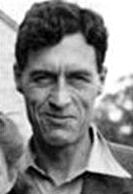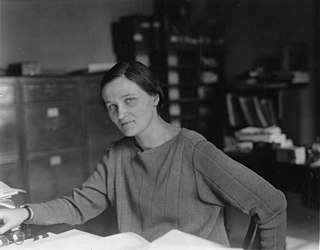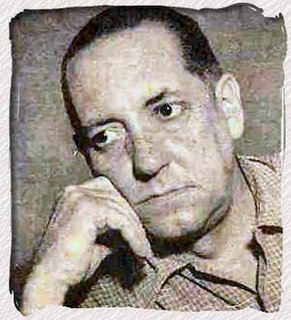A Quote by Albert Einstein
The scientist finds his reward in what Henri Poincare calls the joy of comprehension, and not in the possibility of application to which any discovery may lead.
Quote Topics
Related Quotes
It has always been my belief that the true artist, like the true scientist, is a researcher using materials and techniques to dig into the truth and meaning of the world in which he himself lives; and what he creates, or better perhaps, brings back, are the objective results of his explorations. The measure of his talent--of his genius, if you will--is the richness he finds in such a life's voyage of discovery and the effectiveness with which he is able to embody it through his chosen medium.
Scientific discovery is a private event, and the delight that accompanies it, or the despair of finding it illusory, does not travel. One scientist may get great satisfaction from another's work and admire it deeply; it may give him great intellectual pleasure; but it gives him no sense of participation in the discovery, it does not carry him away, and his appreciation of it does not depend on his being carried away. If it were otherwise the inspirational origin of scientific discovery would never have been in doubt.
It is the consciousness of the threefold joy of the Lord, His joy in ransoming us, His joy in dwelling within us as our Saviour and Power for fruitbearing and His joy in possessing us, as His Bride and His delight; it is the consciousness of this joy which is our real strength. Our joy in Him may be a fluctuating thing: His joy in us knows no change.
When Arthur Ashe plays tennis, his purpose each day is to play the game in a way he has never played it before. It may be a backhand he uses, one that he may never have used before in that circumstance. His play is a fresh integration of his world at the instant of action. A really great scientist has the whole past at his disposal. At any instant he is rebuilding the world, molecule by molecule, in his subconscious. That is what you want in an athlete or a scientist.
The reward of the young scientist is the emotional th
rill of being the first person in the history of the world to see something or to understand something. Nothing can compare with that experience The reward of the old scientist is the sense of having seen a vague sketch grow into a masterly landscape.
In the Kingdom of Heaven, there is no grandeur to be won, inasmuch as there all is an established hierarchy, the unknown is revealed, existence is infinite, there is no possibility of sacrifice, all is rest and joy. For this reason, bowed down by suffering and duties, beautiful in the midst of his misery, capable of loving in the face of afflictions and trials, man finds his greatness, his fullest measure, only in The Kingdom of This World.
If you punish a child for being naughty, and reward him for being good, he will do right merely for the sake of the reward; and when he goes out into the world and finds that goodness is not always rewarded, nor wickedness always punished, he will grow into a man who only thinks about how he may get on in the world, and does right or wrong according as he finds advantage to himself.
A Godly leader ... finds strength by realizing his weakness
finds authority by being under authority
finds direction by laying down his plans
finds vision by seeing the needs of others
finds credibility by being an example
finds loyalty by expressing compassion
finds honor by being faithful
finds greatness by being a servant





































